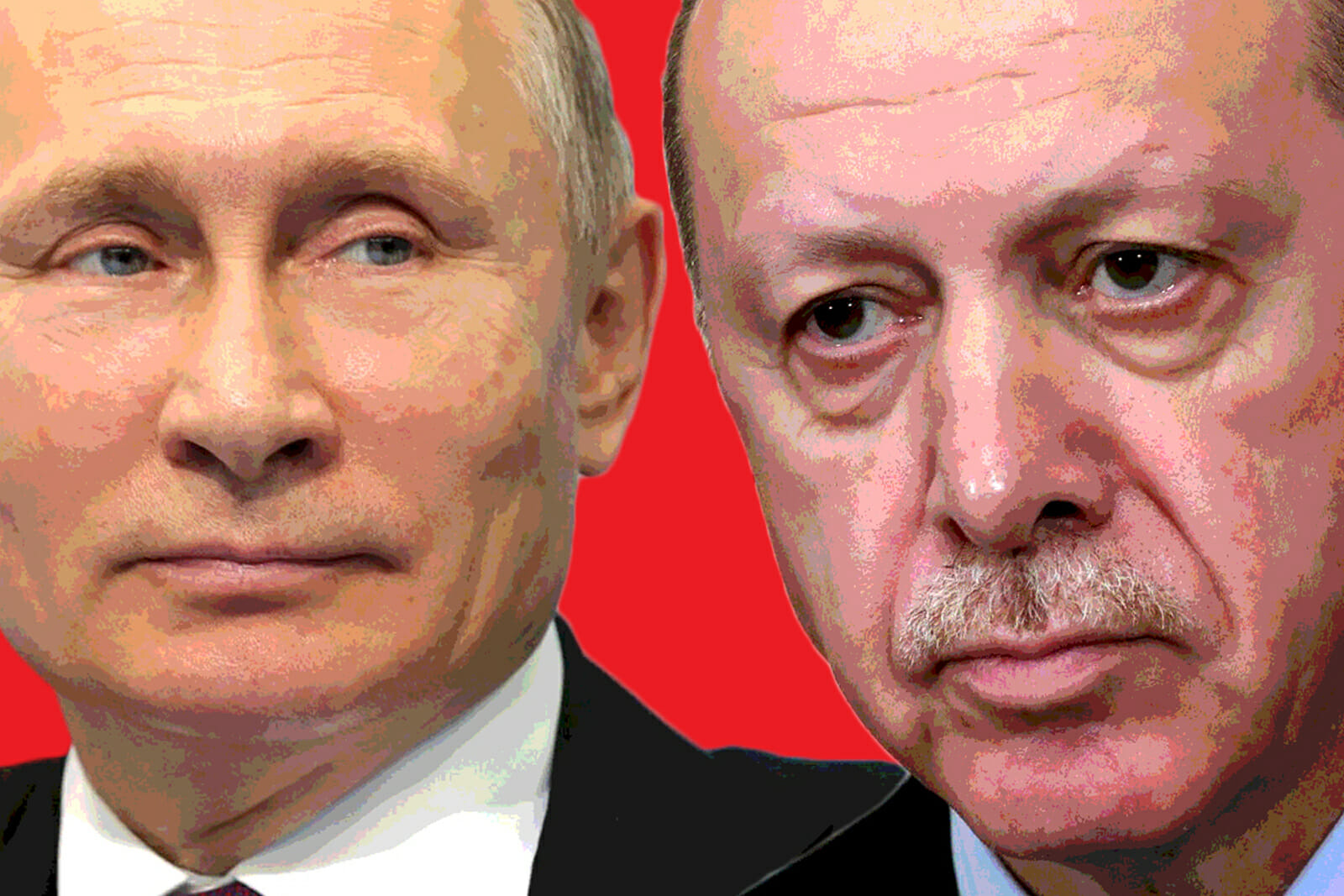
An Amicable Animosity? Interpreting the Geopolitical Relationship Between Russia and Turkey
It is a strange state of affairs when the relationship between two countries, or their leaders, can in a short space of time gain such contradictory epithets as “regional rivals,” “partnership of equals,” and “bitter frenemies.” At first glance, the only constant in recent Russia-Tukey relations is that they are paradoxical. The two countries support opposing sides in at least three bitter conflicts (the ongoing civil wars in Syria and Libya, and the barely “frozen” conflict between Armenia and Azerbaijan). Yet they cooperate closely in a myriad of ways, not least in recent controversial arms sales. The implication of this inconsistent state of affairs is surely that one or both parties misunderstand their own interests across a sizeable portion of the globe?
Reaching such a conclusion is arguably to misread an important feature of the foreign policies of both Russia and Turkey. Albeit unwittingly, each has been able to perform an important function in allowing the other to define, justify or achieve its own goals. And while the interventions of each are frequently in violent opposition to the proxies of the other, there is a tacit understanding that both states can still partially stand to gain from the actions of the other. Recognising this functionality, rather than focusing on the somewhat ephemeral specifics of each unpredictable episode of confrontation or cooperation between Russia and Turkey, is the key to understanding this relationship.
The conflict in Nagorno-Karabakh in Autumn 2020 is a case in point. This was a conflict in which Russia’s ally (Armenia) experienced defeat at the hands of Turkey’s close ally (Azerbaijan). On the surface, what could be more unnerving for Putin than a sizeable power, Turkey, ‘trespassing’ in the post-Soviet backyard, upsetting the status quo and potentially whipping up pan-Turkic sentiment across the region?
There is little doubt that in extremis Russia would prioritise its alliance with Armenia over its looser ties with Azerbaijan. Furthermore, Russia eventually played an important role (along with Turkey) in mediating a solution to the conflict and despatching peacekeepers. However, the most significant development here is not what actions Russia did take, but that it took so long to take them. It has been suggested that Russia deliberately only moved slowly to support its ally Armenia, so that the latter could be reminded of its geographical vulnerability and near-total dependency on Russian security.
It is not inconceivable that this was a lesson which Moscow decided was worth teaching to a former Soviet Republic which in 2018 had tested Russia’s goodwill by a change in government from Prime Minister Serzh Sargsyan, who was close to Moscow, to the more pro-Western Nikol Pashinyan. The opportunity for Russia to deliver this lesson to Armenia was inadvertently provided by Turkey, since it was arguably only Turkey’s unconditional support for Azerbaijan which made the latter’s decision to launch an offensive against Armenian forces feasible. Once this offensive became a reality, the precarious position of an Armenia without Russian protection was laid bare.
A second region in which Russia and Turkey are at loggerheads is Syria, where Russia continues to support the Baathist Assad regime while Turkey supports (some of) the opposition in the North-West. Moreover, both countries, but Turkey, in particular, face grave implications from the spill-over effects of the Syrian Civil War. Nonetheless, both powers have also been able to exploit the ongoing turmoil to further their interests.
Russia has expanded its role as a stakeholder in the regime, in not just a metaphorical but a literal sense. A clear example of this is the Russian half-a billion-dollar investment in the port of Tartus – a direct result of the Syrian regime opening up public entities to foreign economic interests, precisely so as to solidify continued external support for their side in the conflict. Whether viewed through the prism of Russia economically exploiting Syria or rather Assad successfully manipulating his ally, the motivations at play are not difficult to identify. Simultaneously, Turkey has developed its own form of economic influence in the Northwest of Syria, in territories either directly occupied by the Turkish military or Turkish-backed rebel forces, where even the Turkish lira has been adopted.
In this context, zero-sum competition is an inadequate concept for comprehending the balance between Russia’s and Turkey’s engagement in Syria. We instead face the possibility that both powers are able to gain from present circumstances. However intense the conflict on the ground in Syria is, and however great the humanitarian catastrophe experienced by the Syrians themselves, the uncomfortable reality is that external powers of differing hues are far more insulated from the carnage and have to an extent profited from it. Rather than only viewing the conflict in terms of the dividing lines between different warring factions, the internationalisation of the conflict has also created a sharp distinction between Syrians in general (many of whom face a dire situation) and competing foreign powers (who have been able to extend their influence even in apparent opposition to one another).
Finally, it would certainly be a mistake to underestimate the risk of direct military confrontation between Russia and Turkey in a range of regions. Even more plausibly, an escalation of an existing conflict involving their proxies could occur, leading to either government being be backed into a corner with limited options for how to save face both on the international stage and to their respective domestic audiences. However, the possibility of either of these eventualities coming to fruition by anything other than accident continues to be very unlikely. Both Russia and Turkey have an interest in maintaining their competing involvements in a variety of conflict zones, but next to no interest in triggering a direct confrontation with one another.
